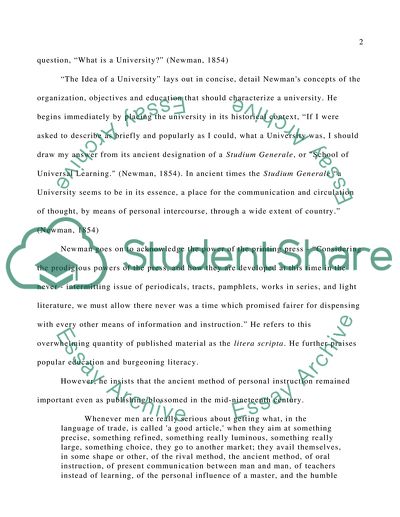Cite this document
(“Student fees are the natural and logical conclusion to the Essay - 1”, n.d.)
Student fees are the natural and logical conclusion to the Essay - 1. Retrieved from https://studentshare.org/miscellaneous/1574899-student-fees-are-the-natural-and-logical-conclusion-to-the-mcdonaldisationof-higher-education-critically-examine-this-statement-in-terms-of-the-traditional-notion-of-a-liberal-education-and-what-constitutes-a-university-see-john-newman
Student fees are the natural and logical conclusion to the Essay - 1. Retrieved from https://studentshare.org/miscellaneous/1574899-student-fees-are-the-natural-and-logical-conclusion-to-the-mcdonaldisationof-higher-education-critically-examine-this-statement-in-terms-of-the-traditional-notion-of-a-liberal-education-and-what-constitutes-a-university-see-john-newman
(Student Fees Are the Natural and Logical Conclusion to the Essay - 1)
Student Fees Are the Natural and Logical Conclusion to the Essay - 1. https://studentshare.org/miscellaneous/1574899-student-fees-are-the-natural-and-logical-conclusion-to-the-mcdonaldisationof-higher-education-critically-examine-this-statement-in-terms-of-the-traditional-notion-of-a-liberal-education-and-what-constitutes-a-university-see-john-newman.
Student Fees Are the Natural and Logical Conclusion to the Essay - 1. https://studentshare.org/miscellaneous/1574899-student-fees-are-the-natural-and-logical-conclusion-to-the-mcdonaldisationof-higher-education-critically-examine-this-statement-in-terms-of-the-traditional-notion-of-a-liberal-education-and-what-constitutes-a-university-see-john-newman.
“Student Fees Are the Natural and Logical Conclusion to the Essay - 1”, n.d. https://studentshare.org/miscellaneous/1574899-student-fees-are-the-natural-and-logical-conclusion-to-the-mcdonaldisationof-higher-education-critically-examine-this-statement-in-terms-of-the-traditional-notion-of-a-liberal-education-and-what-constitutes-a-university-see-john-newman.


